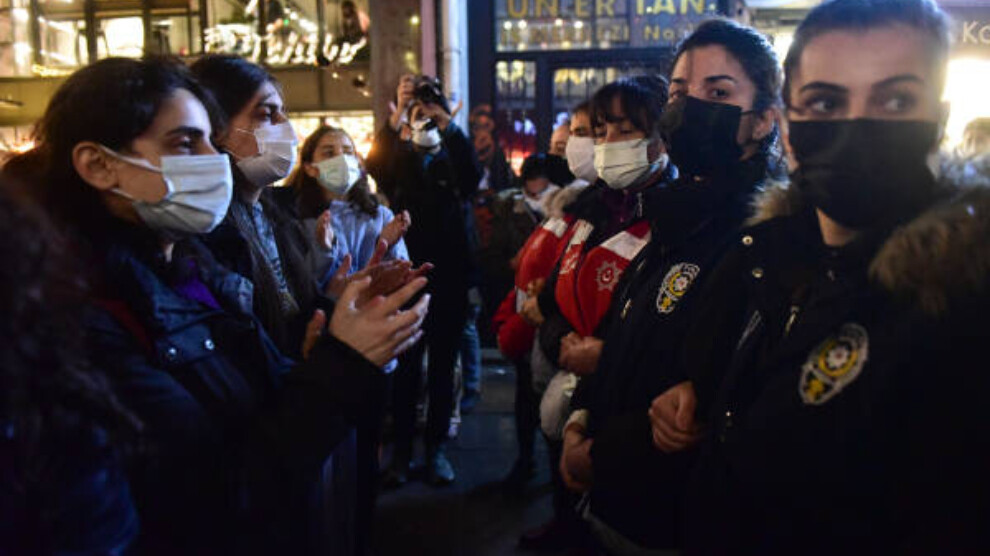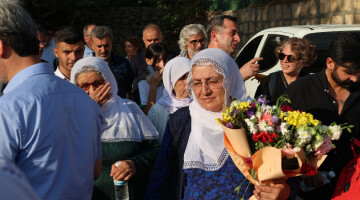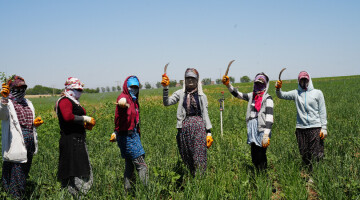Hundreds of angry activists from the Istanbul platform “Women are strong together” took to the streets on Friday evening to denounce the way the Turkish judiciary has dealt with female political prisoners.
“We are not sad, but angry. Our anger is directed at this state and its patriarchal essence, in which a judiciary and revenge justice operates as an instrument of the ruling class to punish women,” said Feride Eralp from the platform.
Garibe Gezer was arrested in 2016 for not leaving the Kurdish city of Dargeçit after the curfew was declared in December 2015. She was sentenced to aggravated life imprisonment, which, according to Turkish criminal law, is carried out until death. On Thursday night, the 28-year-old was found dead in a solitary cell. According to the prison authorities, she is said to have committed suicide. For their relatives, their legal counsel and human rights organizations, the thesis of alleged suicide is not certain.
“The prisons of this country are no longer places where crimes are punished. Rather, they are internment camps whose function is to take political revenge on all fighting people using violence and torture. We women are primarily affected by this,” said the activist Feride Eralp. The platform “Women are strong together” initially planned to make a public statement in front of the Süreyya Opera in Kadiköy. The police surrounded the rally and prevented the statement. Then the women organized a short march through the Asian part of the city.
Aysel Tuğluk, a lawyer and politician who has been imprisoned in Turkey for five years, is in need of care and cannot be kept in prison as she suffers from dementia. However, she is not released. Feride Eralp described the refusal to grant Tuğluk parole as a “clear expression of anti-Kurdish racism” in Turkey. “Our friend Aysel Tuğluk was exposed to various attacks by the racist, sexist and militarist state because she had defended the achievements of women throughout her life and had the courage to rebel against male domination and patriarchal state violence. We won't stop fighting for them. Likewise, we will work to identify those responsible for Garibe Gezer's death and we will bring them to account,” said Feride Eralp in conclusion.















